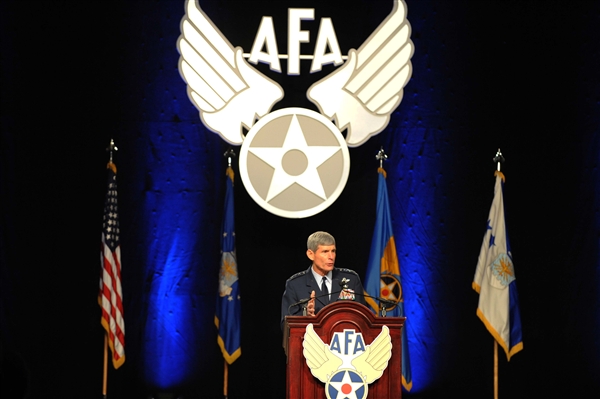WASHINGTON, Sept. 22, 2011 — U.S. leaders are committed to maintaining strong relationships with Persian Gulf nations and to bolstering security in the region, senior administration officials said today.
Defense Secretary Leon E. Panetta and Secretary of State Hillary Rodham Clinton will be among National Security Council members meeting in New York tomorrow with Gulf Cooperation Council ministers to discuss a wide range of topics of mutual interest, officials said.
During a background conference call with reporters today, officials said the ministerial is intended to deepen and strengthen security cooperation between the United States and the council, which includes six nations bordering the Persian Gulf: Bahrain, Kuwait, Oman, Qatar, Saudi Arabia and United Arab Emirates.
While the “Arab awakening” uprisings across the region in recent months have altered conditions there, the United States and GCC share the goal of promoting regional security in the Gulf, a senior administration official, speaking on background, said.
“The GCC is emerging as an increasingly critical partner to advancing our common interests,” he said.
Those interests include Libya, Yemen, Syria, maritime security, counter-terrorism, energy security and countering weapons proliferation, the official added.
“U.S. collaboration with … the six GCC countries working together as an institution is critical, and I expect the discussion tomorrow will touch on all those topics,” he said.
The United States and the council have similar concerns about the role Iran tries to play in the region, the official said, and a united position on that issue sends “a powerful message to Iran that its aggressive activities undermine its regional standing.”
The GCC’s role as a strong, early advocate for U.N. intervention in Libya was an “extraordinary example of shared leadership and cooperation,” the official said.
The United States also shares with the GCC a strong interest in promoting Iraq’s long-term stability, the official said.
“Tomorrow’s meeting will continue to put the GCC at the heart of the region’s security architecture, and start to formalize how we work together,” he said.
Another senior administration official said Panetta’s participation in the ministerial is intended to send a strong signal of “how much we value these partners.”
“We share significant common interests, including countering extremism, stopping the proliferation of weapons of mass destruction, ensuring the free flow of commerce in the region, and addressing any threats posed by Iran,” he said.
During tomorrow’s meeting, Panetta will emphasize the need to strengthen and deepen the security architecture in the Gulf region, which already includes a robust schedule of multilateral and bilateral military exercises, cooperation on counter-smuggling and counter-piracy efforts, and increasing common interest in shared early warning and ballistic missile defense, he said.
“We want to send a strong signal to our partners regarding our enduring commitment to the security of the region,” the second official said. “It will also send a strong signal to Iran that if it continues its destabilizing activities in the region and refuses to meet its international obligations, it’s going to find itself less, rather than more, secure.”
The defense secretary also will discuss the United States’ long-term commitment to partnership with Iraq’s people and government, an official said.
“A relationship with the Iraqi security forces will be an important part of that partnership, and we will be encouraging our [GCC] partners to do more to reintegrate Iraq into the region,” he added.
Source:
U.S. Department of Defense
Office of the Assistant Secretary of Defense (Public Affairs)

 von
von 